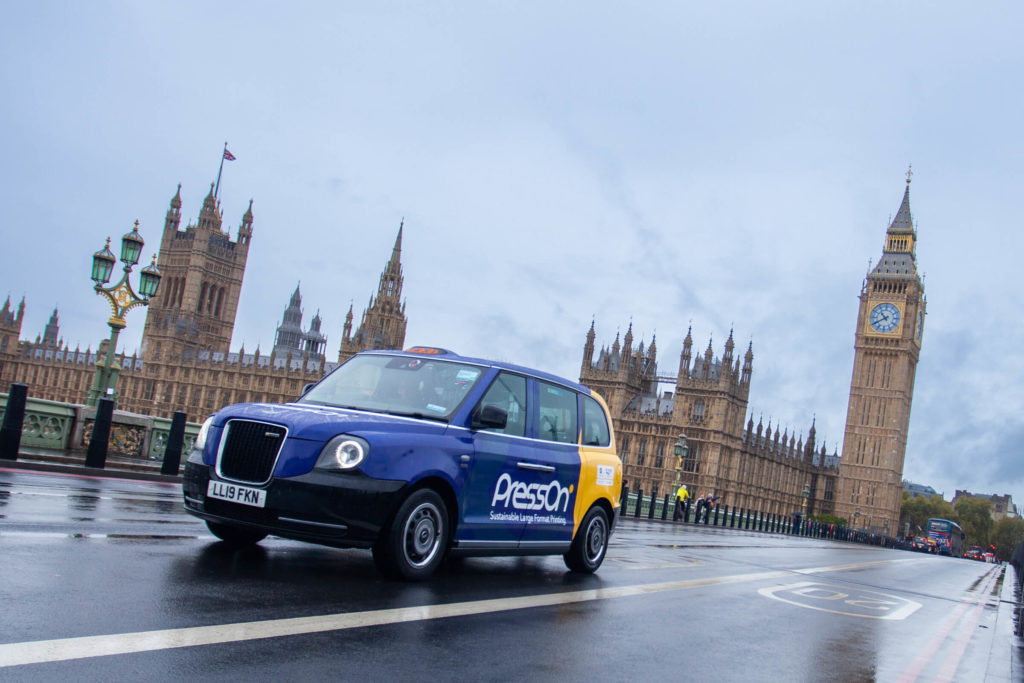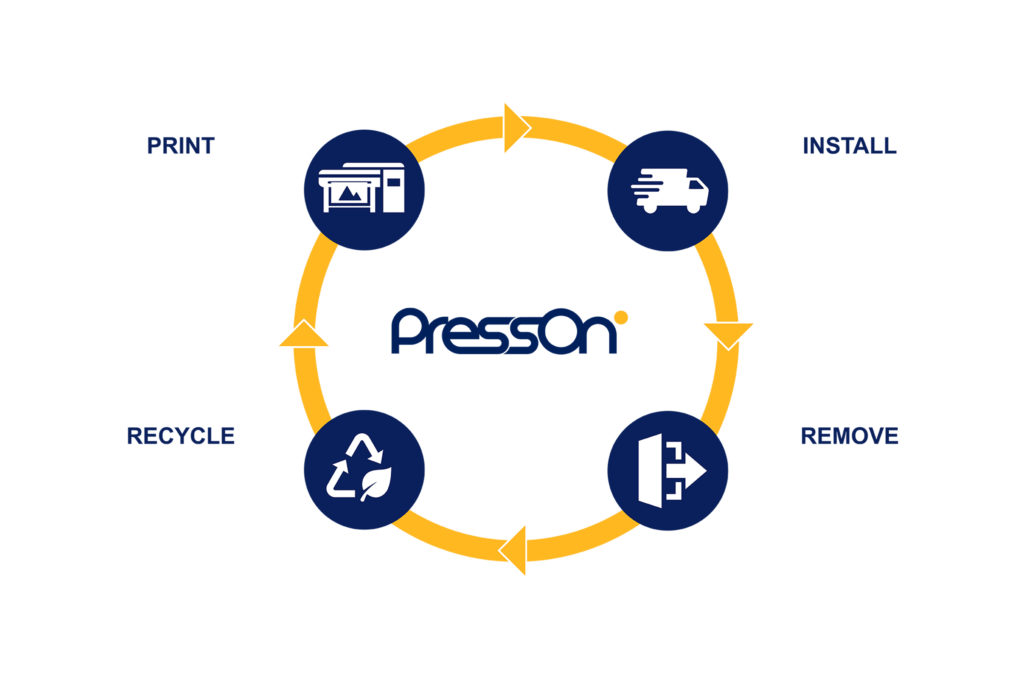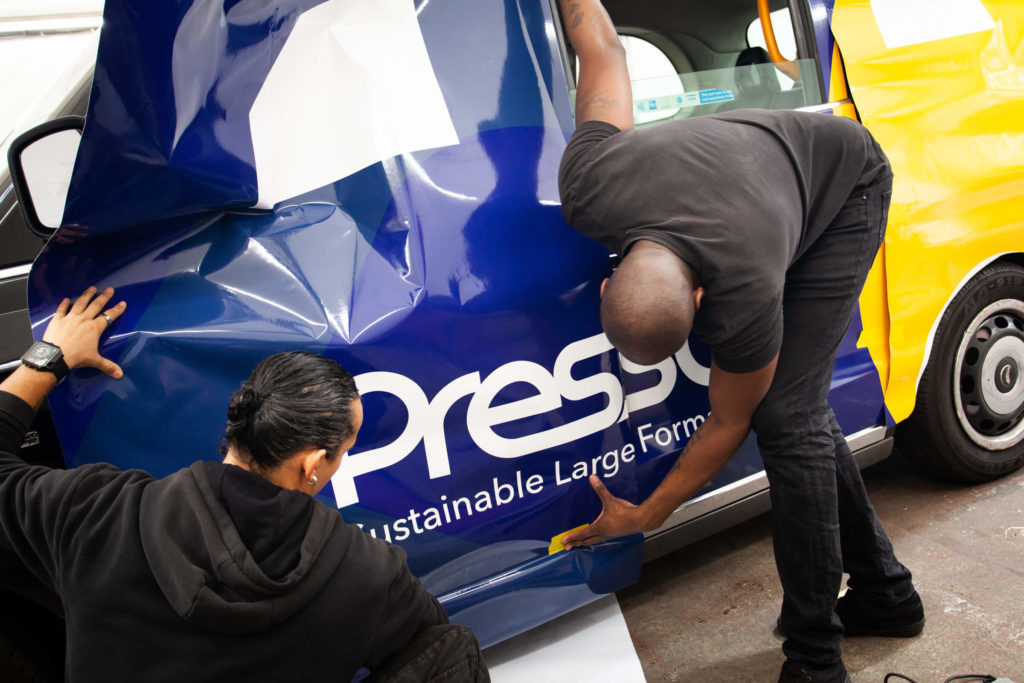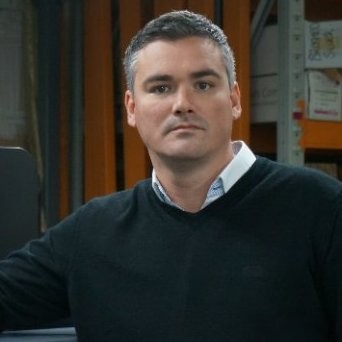As we explored in a previous article, the print industry has historically struggled to reduce its impact on the environment, but it’s vital to overcome these barriers as we strive for a more sustainable future. At PressOn, sustainability is more than just a buzzword, and a new development in Metamark’s self-adhesive vinyl technology has helped us further along in our journey to becoming fully carbon neutral by 2030.
Reducing the impact human activity has on the health of our planet is likely to be the defining challenge of our age, with convergent crises in global warming, deforestation, plastic pollution and biodiversity loss demanding urgent action. In this context, it is understandable that consumers expect businesses to do their part, and increasingly the clients of suppliers like PressOn are committing to ambitious sustainability targets.
This is why sustainability has been a priority at PressOn for many years, fulfilling both our own responsibility as a company to reduce our impact and to provide the best possible low-environmental-impact service to our clients – with the effort continuing to be well worth the results. Perhaps one of the most encouraging aspects of this work is discovering not only can print become more sustainable, but that the graphics produced using low-impact processes and technology are as good – or better – as those which aren’t.
For a long time, “environmentally-conscious” and “print industry” were not considered to be very synonymous, but by focusing on the problem and attempting to overcome it, it became clear that it is more than possible to make operational and technological leaps that allow us to offer low-impact printing solutions. An exciting new technology and process means that PressOn can now offer our clients yet another low-impact alternative to traditional printing: recyclable taxi liveries, with Metamark’s new recycling scheme.
Reducing Impacts At Every Stage of The Print Process
On our journey to carbon neutrality, (alongside less waste and reduced environmental pollution) we have broken down the printing process into four key areas where it is possible to make a difference. Alongside our partners, we have been on a mission to continually innovate and research new technologies across each element, making piecemeal changes that together lead to wholesale transformation.
- How do we print?
- What do we print on?
- Where did we get it from?
Install
- Where is it?
- How do we get it there?
- How long does it take?
Remove
- How do we get it back?
- Is local disposal an option?
- Can it be universally recycled?
Recycle
- Can it be recycled?
- By what company – responsible disposal?
- At what cost?
The steps we take at each stage of the process differ, but include everything from offering recyclable and reusable installations such as tension fabric frames (which include reusable graphics, removing the need for disposal), and environmentally-sympathetic technology such as HP’s water-based inks and water-based protective coatings, which negate the use of environmentally-damaging solvents.
By offering a suite of processes, products, and techniques at every stage of project, PressOn are able to ensure that our clients’ installations are as eco-conscious as possible. Metamark’s new recycling scheme adds another string to this bow.
PressOn, ESG Principles and Metamark
PressOn’s latest step in achieving environmentally sympathetic industry practices relates to several of the elements outlined above, and has been realised through the work of materials supplier and manufacturer Metamark to create a sustainable, circular economy for their products.
Amongst other products, Metamark provides large format printing companies like PressOn with substrates that are used to create eye-catching and impactful print graphics. These substrates include the self-adhesive vinyl used in taxi wrap and fleet livery projects, and Metamark has innovated a new livery vinyl which is fully recyclable – avoiding the need for old print graphics to go to landfill or be incinerated.
At PressOn, we have embraced Metamark’s new MetaStream recycling service as a way to support our clients in their environmental goals, ensuring that retired liveries are not simply discarded, but instead become part of new products (which themselves can be recycled).
With more and more brands adopting ESG principles, where their corporate strategy focuses on the three pillars of the environment, social, and governance, all measures taken to lower pollution, CO2 output and waste can be a vital part of a holistic environmental strategy. Marketing is no exception in this, and by finding suppliers that advance environmentally-sympathetic practices, brands can ensure they are lowering their impact across every aspect of their business.
Manufactured in Cumbria and Lancaster, Metamark’s non-PVC offering (available in both gloss and matt) also has the advantage of being local to the UK, meaning that PressOn can source the materials without more carbon being released in international shipping.
The Future of the Print Industry
Offering MetaStream to our clients ticks important boxes across the print, removal and recycling stages of the print process, and provides peace of mind to brand stakeholders with environmental targets to fulfil. For the team here at PressOn, it is exciting to see these kinds of developments take place in an industry that many people believed would be unable to minimise its impact, and we look forward to discovering the next innovation on the horizon.




